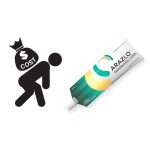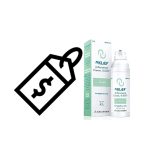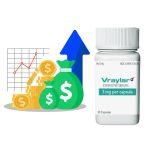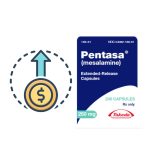Why Is Denavir So Expensive?
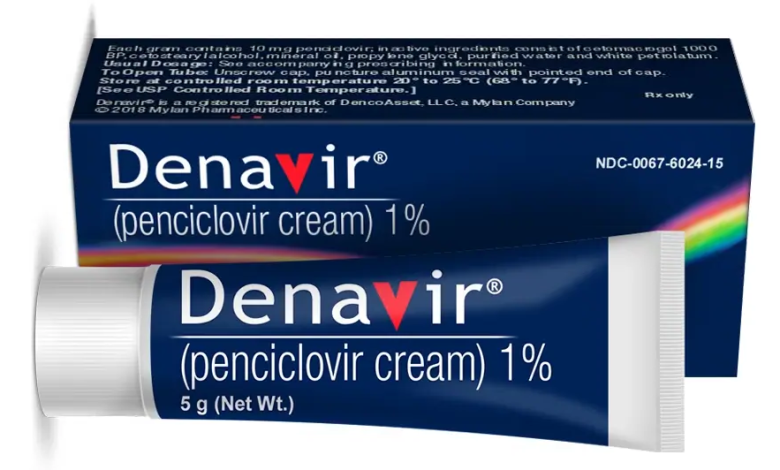
Denavir is a brand name for the medication penciclovir, which is an antiviral drug used topically to treat cold sores (also known as fever blisters or herpes labialis) caused by the herpes simplex virus. Cold sores are fluid-filled blisters that typically appear on or around the lips and are often triggered by factors such as stress, sunlight, or a weakened immune system.
Penciclovir works by inhibiting the replication of the herpes simplex virus, thereby reducing the duration and severity of cold sore outbreaks. Unlike some other antiviral medications, such as acyclovir, penciclovir is applied directly to the affected area as a topical cream rather than being taken orally.
When applied to cold sores according to the prescribed regimen, Denavir can help speed up the healing process and alleviate symptoms such as pain, itching, and burning associated with cold sores. It is most effective when applied at the first sign of a cold sore, such as tingling or itching, and should be used consistently as directed by a healthcare provider.
Despite its effectiveness, Denavir’s price tag often raises eyebrows, leaving many wondering why this medication is so expensive. In this article, we’ll delve into the factors contributing to Denavir’s high cost and explore the implications for patients and the healthcare system.
Why Is Denavir So Expensive?
The high cost of Denavir, like many prescription medications, can be attributed to several factors, including:
1. Research and Development (R&D) Costs: Pharmaceutical companies invest significant resources in the research and development of new medications. The process involves extensive preclinical studies, clinical trials, and regulatory approval processes, which can incur substantial expenses. To recoup these costs, drug manufacturers often set higher prices for their medications.
2. Limited Competition: Denavir may face limited competition in the market, particularly in the topical antiviral segment for cold sore treatment. With fewer alternatives available, manufacturers may have more control over pricing without significant pressure from competitors.
3. Patent Protection: Brand-name medications like Denavir are typically protected by patents, granting their manufacturers exclusive rights to produce and market the drug for a specified period, usually around 20 years. During this time, generic versions of the medication cannot enter the market, allowing brand-name manufacturers to maintain higher prices.
4. Production Costs: While Denavir is a topical cream, its production involves complex processes and quality control measures to ensure potency, safety, and stability. These production costs, including manufacturing, packaging, and distribution, contribute to the overall price of the medication.
5. Marketing and Sales Expenses: Pharmaceutical companies invest significant resources in marketing and promoting their products to healthcare professionals and consumers. These expenses, including advertising campaigns, sales representatives, and educational materials, are factored into the price of Denavir and other brand-name medications.
6. Insurance Coverage and Rebates: Despite the high price of Denavir, many patients may receive coverage for the medication through health insurance plans. Additionally, pharmaceutical companies often offer rebates and assistance programs to help offset the cost for eligible individuals. However, these mechanisms do not address the underlying issue of the medication’s high cost and may result in increased premiums or out-of-pocket expenses for policyholders.
Overall, the high cost of Denavir reflects the complex interplay of factors shaping medication pricing in the pharmaceutical industry. While research and development, limited competition, and patent protection justify some of the expenses, the affordability of essential medications like Denavir remains a pressing concern for patients and healthcare stakeholders. Addressing the root causes of high drug prices requires collaborative efforts from policymakers, healthcare providers, pharmaceutical companies, and patients to ensure equitable access to safe and effective treatments.
Can I get Cheaper Denavir?
While Denavir is typically a brand-name medication with a higher price tag, there are a few strategies you can explore to potentially obtain it at a lower cost:
1. Generic Alternatives: In some cases, generic versions of Denavir may be available at a lower cost. Generic brands like Vectavir and Fenivir also contain the same active ingredient (penciclovir) as Denavir and are typically less expensive because they do not involve the same research and development costs. Ask your healthcare provider or pharmacist if a generic alternative to Denavir is available and appropriate for your needs.
2. Insurance Coverage: Check with your health insurance provider to determine if Denavir is covered under your plan. If so, you may be able to obtain the medication at a reduced cost through your insurance. Be sure to review your plan’s formulary (list of covered medications) and any prior authorization requirements that may apply.
3. Patient Assistance Programs: Some pharmaceutical companies offer patient assistance programs to provide financial assistance or free medication to eligible individuals who cannot afford their prescription medications. Contact the manufacturer of Denavir or visit their website to inquire about any available assistance programs and eligibility criteria.
4. Prescription Discount Cards or Coupons: Prescription discount cards or coupons can help lower the out-of-pocket cost of medications, including Denavir. These cards are typically available for free and can be used at participating pharmacies to access discounted prices. Websites such as GoodRx or RxSaver offer prescription discount cards and coupons that may help you save on your medication costs.
5. Comparison Shopping: Compare prices for Denavir at different pharmacies, both online and in-person, to find the best deal. Prices can vary significantly between pharmacies, so it’s worth shopping around to find the most affordable option. Additionally, consider purchasing a larger quantity of Denavir (if appropriate) to take advantage of potential bulk discounts or savings.
6. Discuss Alternatives with Your Healthcare Provider: If Denavir is not affordable or accessible for you, discuss alternative treatment options with your healthcare provider. There may be other medications or over-the-counter treatments available for cold sores that are more affordable or covered by your insurance.
It’s important to prioritize your health and well-being when considering options for obtaining Denavir or any other medication. Be sure to consult with your healthcare provider and pharmacist to explore the best options for managing your condition while considering cost-effectiveness and affordability.

